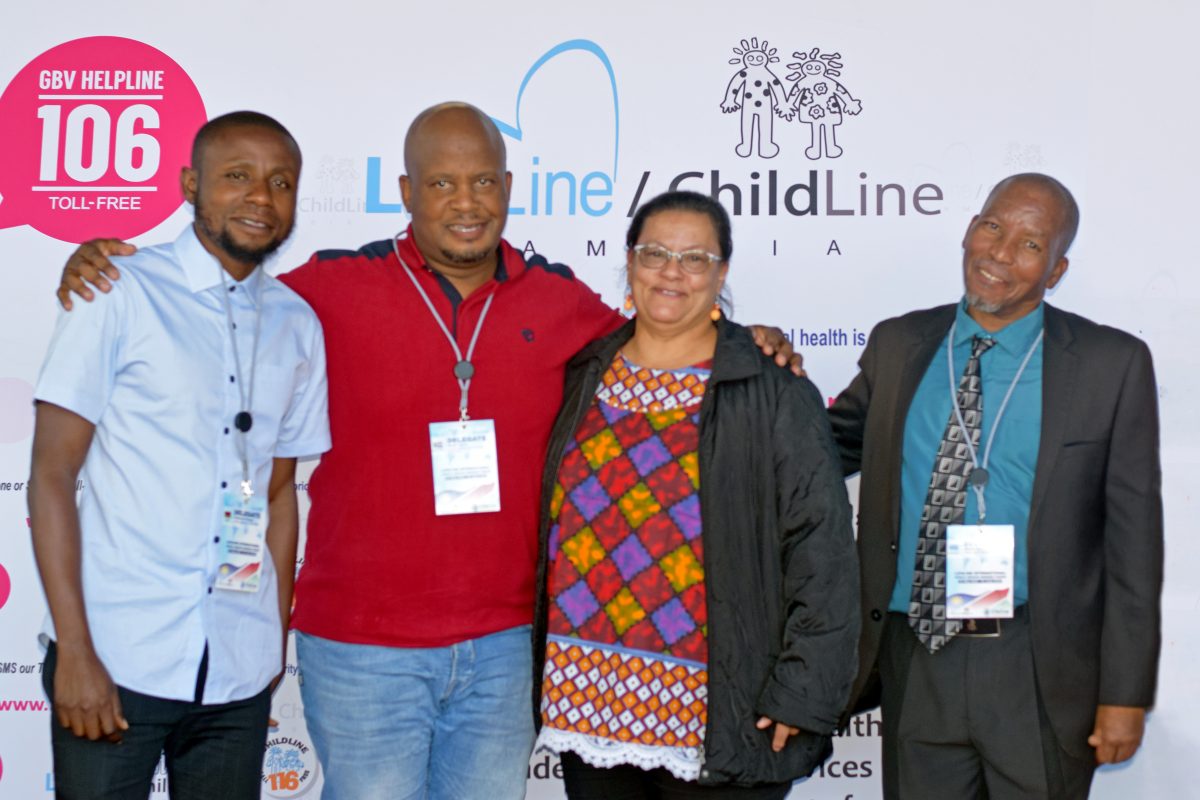Nicolette Bessinger:“Suicide prevention affects the whole community”
August 2023
A Q&A with Nicolette Bessinger, Director of LifeLine/ChildLine Namibia
Our dedicated Members around the world are working to deliver lifesaving services to prevent suicide worldwide. One Member is LifeLine/ChildLine Namibia, a pivotal organisation which works in partnership with the Namibian Government and others, to provide vital crisis support services, child welfare programmes, educational initiatives as well as partnering on landmark national strategies for suicide prevention.
Last month, it took on another leading role, hosting the LifeLine International network’s first African Countries Regional Forum. The event was commemorated by Dr. Ester Muinjangue, the country’s Deputy Minister of Health and Social Services, and attended by LifeLine representatives from our six Members across Africa.
Leading the event and these initiatives day-to-day is Nicolette Bessinger, who has been the Director of LifeLine/ChildLine Namibia since 2018. She sat down to talk with us about the work she and her teams do, lessons from the Forum and what’s on the roadmap to build stronger suicide prevention in Namibia:
How does being part of the LifeLine International support the work you do?
Throughout Africa, things are a bit different than on other continents. Being part of the LifeLine International membership exposes us to the knowledge out there and helps us learn from peers. You get insight into developments, the papers are shared in sessions – it’s very, very informative for us.
It’s also a place to cross-check what you’re doing: are we in line with issues around suicide? That helps us a lot. Then recently, with financial support coming in, it has really helped us to further set up services, with the deliverables that we are accountable for based on our strategic plan.
You recently hosted the first regional meeting for Africa for LifeLine International. How did that help your work?
The Forum was a big highlight for us. It was really a great opportunity – the social media, the exposure we got, it’s just another reaffirmation of the work that we’re doing. That week in the media, a lot of the press was about suicide prevention, sharing all the statistics around suicide and what resources we have in the country. It was our pleasure to host it. For me, it was very rewarding.
The Deputy Minister of Health closed the Forum for you – what impact did that have on the event and your work?
It was important to have her there. She’s also from a social work background, so she’s sensitive to these issues and very eager to take part. Her presence helped us to emphasize the importance of raising awareness around suicide. Her association with the event triggers a very high level of interest, so she can help us to fast-track processes that are supposed to take off in the country, for example, the national strategy around suicide.
We participated in creating the strategy, but with the government’s capacity, some things were taking a while. Hearing all of the issues discussed at the Forum really pushed the government to finish it not long after that meeting. Afterwards they had one final meeting to deal with the handling of legislation on suicide for the country.
Speaking about working on the ground, how would you describe awareness levels about the importance of mental health and suicide prevention in Namibia?
In terms of awareness: it’s there, we know about it, it’s just seen as something we don’t talk about. The challenge that we have is that suicide prevention and awareness is not just the government’s concern. It affects the whole community. Every one of us has to be part of it. It is our churches, our schools, our community-based organisations, our civil society, individuals, community leadership, everyone has a role. But very often in this country, we tend to turn to the government to take responsibility. Unfortunately, our government doesn’t have the human resources. We do not have sufficient social workers and the legislation in the country limits the power of counsellors.
What are the biggest challenges facing the region in the next few years? What would you like to see change in Namibia as you go forward?
The Forum really helped us to raise more awareness, but in our country, suicide is becoming a more and more serious issue. It’s the access to services which is maybe the bigger issue. In the organization, we talk about suicide in schools, we talk about it in the communities on the radios, we have these conversations, awareness has been raised, but there’s a lot more that needs to be done.
With the 50%-plus unemployment rate, and with HIV/AIDS, our youth is in trouble. If you look at the statistics coming through on suicide, it’s not good. A lot of it is economic, and that’s beyond us. But what LifeLine International can do is to make the services accessible and to continue the conversation, understanding what mental health means and providing lifesaving services.
Our long-term purpose here is that suicide and suicide prevention is understood and spoken about at a household level. Understanding that suicide is not something to shy away from. It’s not a shame, it’s not a sin. It is preventable. If we break down all those barriers, then we should be able to access services, and to continue to make those services available.
This interview has been edited for length and clarity.
